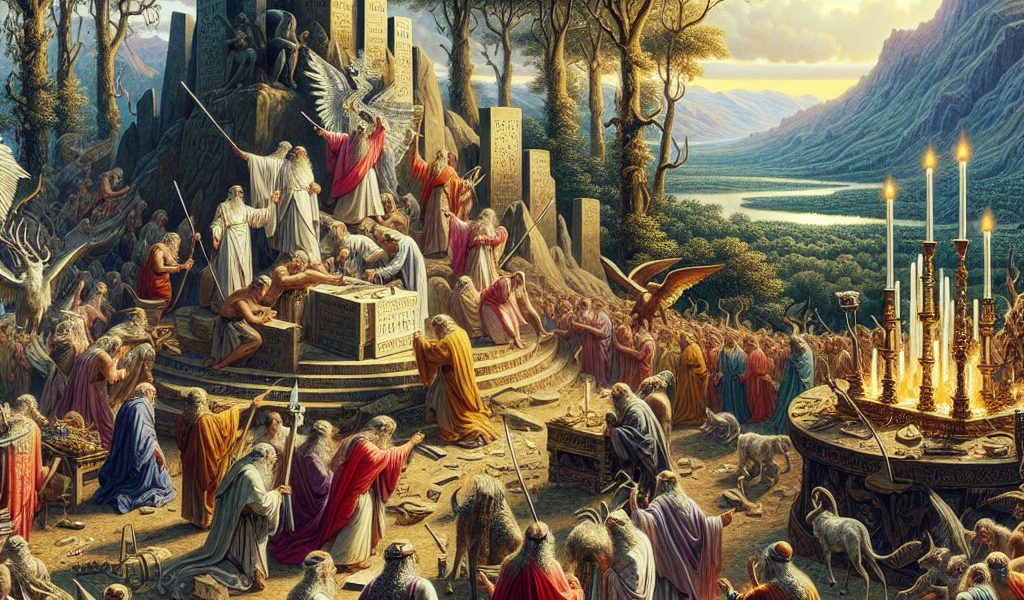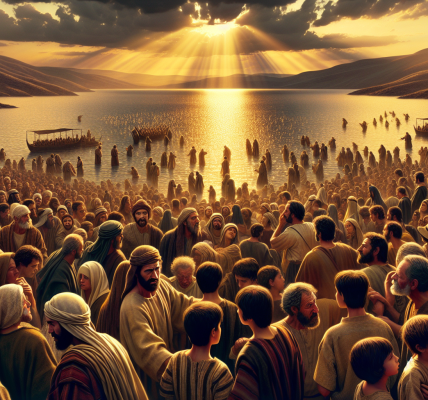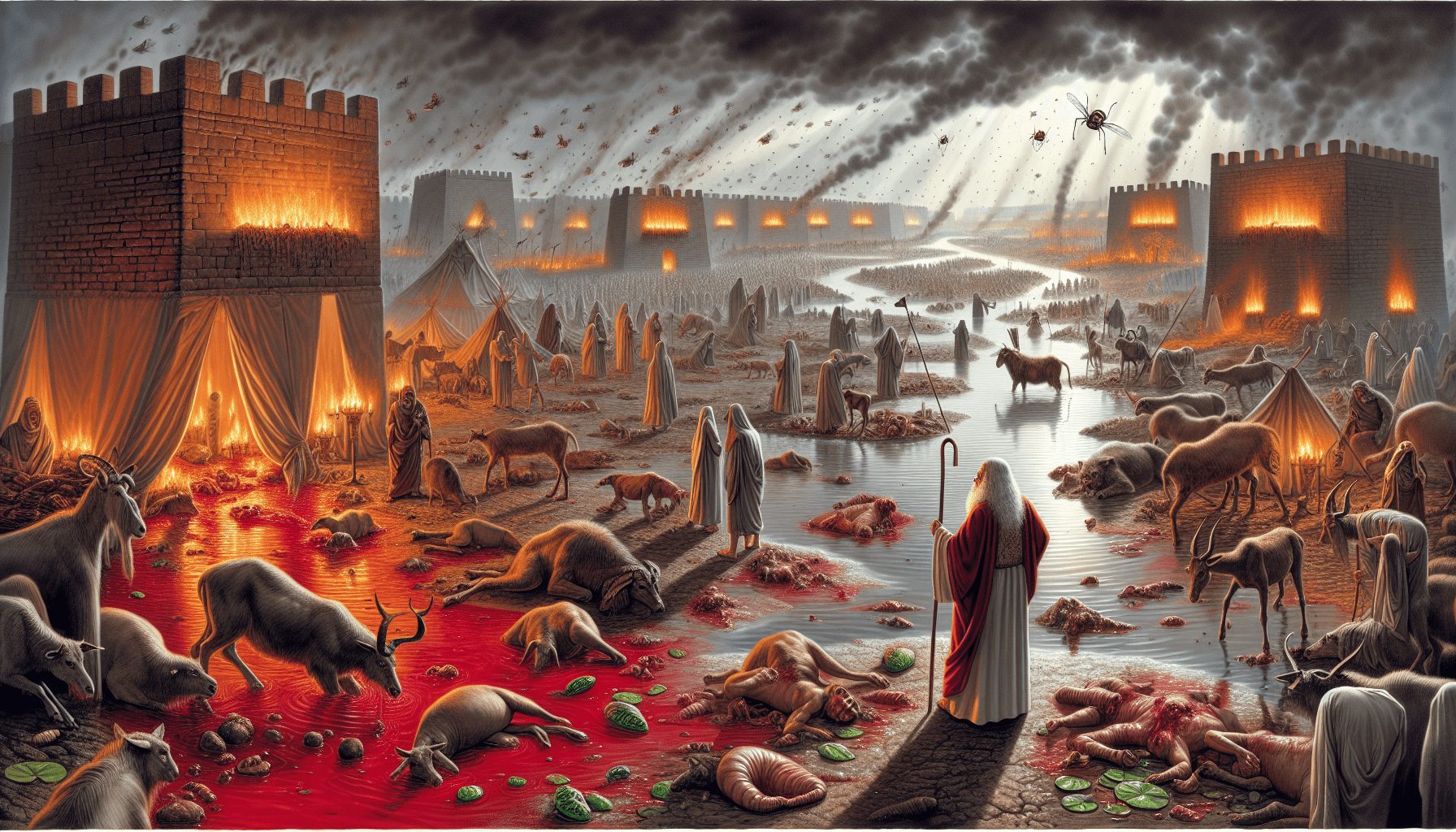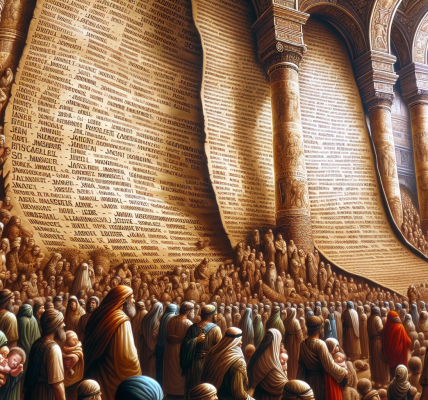Once upon a time, in the kingdom of Judah, the Israelites committed a great sin. It was so atrocious that it was chronicled with a pen of iron, engraved with the point of a diamond; indelible and unforgetting, record of their wrongdoing were etched upon the tablets of their hearts and branded onto their altars. Despite their knowledge of God’s commandments, the people persisted in this rebellion, their children mimicking their veneration of idols, the Asherim, in the shadow of flourishing trees high upon hills.
The Lord saw these transgressions and in his anger declared a severe punishment. He pronounced that the riches and treasures of Judah would become a spoil, its high places razed because of its sins. The people would find themselves dispossessed of their hard-earned heritage, subjugated by their foes in unfamiliar lands. The fire of their transgressions had kindled a divine fury that would burn forevermore.
The Lord decreed a haunting curse upon those who placed their trust in humans than in Him, warning them of becoming like a barren shrub in the desert, blighted and solitary, unable to flourish when bounty came their way. They were destined to inhabit a harsh, salt-drenched wilderness, bereft of life and joy.
Contrastingly, He blessed those who sought refuge in His name, promising them prosperity akin to a thriving tree planted by a river, its roots reaching deep into the nourishing waters. Even in times of scorching heat and years of drought, these blessed people would flourish, continually bearing fruit and staying evergreen.
The Lord attested of His omniscience, discerning the deceptions of the human heart, which are more corrupt than anything else. He avowed to reward each according to their deeds, discerning truth from deceit.
The Lord drew parallels between an unrighteous person who acquired wealth illegitimately to a partridge sitting on eggs it did not lay. Such wealth would desert him midway through life, leaving him foolish and hollow.
However, God, the eternal and glorious throne, the hope of Israel, promised that those who held steadfast in their faith would never be put to shame. While these words of hope were promising, the people of Judah were warned of the consequences of ignoring the Sabbath. Those who forsook the commandment to observe the holy day will face severe punishment.
The message echoed across the kingdom’s gates where the kings and inhabitants of Jerusalem came and went, carried by the prophet chosen by the Jehovah himself.
In defiance of the Lord’s command, the people did not heed the warnings. They continued to disregard the Sabbath, carrying burdens through the city gates, failing to keep it consecrated.
If only they would listen, God promised, kings and princes would once again enter the city gates, riding on chariots and horses, alongside the men of Judah, and the city would remain eternal. They would come from every corner of the kingdom bearing offerings of thanksgiving to the Lord.
Yet, the promise held an ominous warning. If they continued to desecrate the Sabbath, a devastating fire would ravage the city, consume its palaces, and it would be impossible to extinguish. The future of Judah now hinged on its people’s obedience to God’s commandments.




